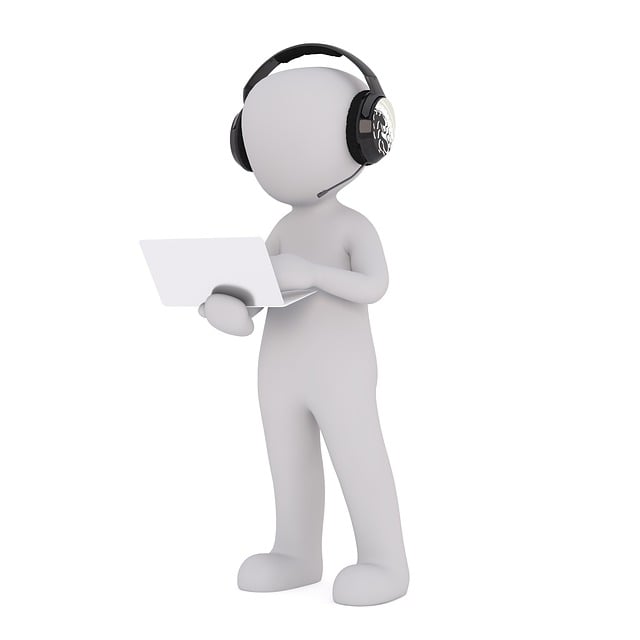SMS marketing automation uses AI to personalize content and two-way communication via WhatsApp, enhancing brand-customer relationships. Timing, frequency, and segmentation strategies optimize engagement during off-peak hours and increase response rates. Measuring success through key metrics like open rates and CTRs allows for data-driven personalization and improved campaign effectiveness.
SMS marketing automation is transforming the way businesses connect with customers. By leveraging automated tools, companies can send targeted, personalized messages at scale, fostering deeper relationships. This article explores the fundamentals of SMS automation, from understanding its core concepts to implementing effective personalization strategies. We’ll delve into optimal timing and frequency, audience segmentation techniques, and key metrics for gauging success, empowering you to build lasting, meaningful connections through this powerful channel.
- Understanding SMS Automation: The Basics Unveiled
- Personalization Strategies for Engaging Customers
- Timing and Frequency: Striking the Right Balance
- Segmenting Your Audience for Effective Campaigns
- Measuring Success: Key Metrics for Relationship Building
Understanding SMS Automation: The Basics Unveiled

SMS marketing automation is a powerful tool for businesses to enhance their customer engagement strategies. At its core, it involves streamlining and automating the process of sending text messages on mass scales while personalizing content for individual recipients. This technology utilizes data-driven insights and predefined rules to send timely and relevant messages, ensuring each customer receives tailored communications.
By integrating SMS marketing automation with a robust Customer Relationship Management (CRM) system, businesses can capture valuable customer data, segment their audience, and create dynamic text message campaigns. Marketing automation allows for personalized interactions, from welcome messages and promotions to automated reminders and loyalty programs. This approach fosters stronger connections between brands and customers, driving engagement and boosting the effectiveness of text message marketing efforts.
Personalization Strategies for Engaging Customers

In the realm of SMS marketing automation, personalization is key to fostering lasting relationships with customers. By leveraging AI chatbots and incorporating dynamic content based on user behavior and preferences, businesses can create a tailored experience that resonates with each individual recipient. For instance, sending targeted offers or personalized birthday greetings using customer data not only enhances engagement but also builds brand loyalty.
WhatsApp marketing, as part of this automation strategy, allows for two-way communication, enabling businesses to quickly address customer queries and gather valuable feedback. The integration of AI chatbots within SMS platforms further streamlines the process, automating personalized responses and ensuring consistent interaction with customers at scale. This level of customization helps create a sense of exclusivity and appreciation, encouraging repeat business and fostering strong, enduring relationships.
Timing and Frequency: Striking the Right Balance

In SMS marketing automation, timing and frequency are critical factors that determine the success of your campaigns. Sending messages at the wrong time or too often can lead to customer fatigue and increased unsubscribe rates. The ideal balance depends on understanding your target audience’s behavior and preferences. For instance, promotional texts might be better received during off-peak hours when recipients are less likely to be engaged in other activities.
Using marketing analytics, you can gain insights into when your customers are most active and responsive. This data enables you to schedule messages at optimal times, increasing the chances of engagement. Additionally, a well-planned frequency ensures that your audience doesn’t feel overwhelmed but rather looks forward to your communications. A carefully crafted mix of personalized content, including strategic missed call text backs, can foster stronger relationships with customers by showing respect for their time and preferences.
Segmenting Your Audience for Effective Campaigns

In the realm of SMS marketing automation, understanding your audience is key to crafting successful campaigns that foster lasting relationships. Segmenting your customer base allows for personalized communication, ensuring each message resonates with its intended recipient. By dividing your contacts into specific groups based on demographics, purchase history, or behavior patterns, you can tailor content and offers to individual preferences. This level of customization significantly increases engagement rates compared to generic bulk texts.
For instance, a simple strategy could involve sending a missed call text back service, where customers who don’t answer a call receive a follow-up message with relevant information or an offer. This approach leverages the crm (customer relationship management) capabilities of SMS automation, allowing businesses to maintain consistent communication while respecting customer opt-in preferences. Unlike email marketing, SMS offers a direct line to your audience, making it an effective tool for building and nurturing relationships one message at a time.
Measuring Success: Key Metrics for Relationship Building

Measuring success in SMS marketing automation is pivotal for building lasting customer relationships. Key metrics include open rates, click-through rates (CTRs), and average response times. Open rates indicate the percentage of recipients who opened your messages, reflecting message relevance and appeal. High CTRs demonstrate active engagement with your content, be it links to products, promotions, or interactive surveys. Average response time is another critical factor; swift responses suggest a high level of interest and can significantly enhance customer satisfaction.
Integrating missed call text back (MCTB) features within your SMS marketing automation strategy can further enrich these metrics. MCTB allows recipients to respond via a quick call back, providing valuable real-time interaction data that complements marketing analytics. By analyzing these combined insights—open rates, CTRs, response times, and MCTB engagement—marketers can tailor future campaigns, personalize content, and foster deeper connections with their audience.
SMS marketing automation is a powerful tool to foster lasting customer relationships by providing personalized, timely, and relevant communications. By understanding the basics of automation, employing strategic personalization, and optimizing timing, frequency, and audience segmentation, businesses can effectively engage their customers. Measuring success through key metrics allows for continuous improvement, ensuring each message builds a stronger connection. Adopting these practices can revolutionize your SMS marketing strategy, turning one-time buyers into loyal advocates.
